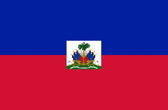
Call 0330 880 3600 Calls may be monitored or recorded. Opening Times.
- TRAVEL INSURANCE
- COVID-19 COVER
- More Options
- Help & Advice
- Existing Customers

Call 0330 880 3600 Calls may be monitored or recorded. Opening Times.

Need help?
UK Customer Services0330 880 3600*
Open Monday to Friday 9:00am to 6pm, Saturday 8:30am to 4pm and closed Sundays.
*Calls are recorded for training and quality purposes.
Other Guides

Official name: Republic of Haiti
Capital city: Port-au-Prince
Languages spoken: Haitian Creole, French
Population: Around 12 million
Currency: Haitian gourde (HTG)
Time zone: GMT-5
Driving side: Right
Climate: Warm and tropical with two rainy seasons, May–October being the wettest and hurricane risks peaking June–November
Haiti, occupying the western third of the island of Hispaniola, is rich in culture, resilience and history as the world’s first Black-led republic and the first Caribbean nation to gain independence. While its recent decades have been marked by political and environmental challenges, Haiti is also celebrated for its vibrant art, music, and cuisine, as well as striking mountain scenery and lively coastal towns.
Haiti borders the Dominican Republic to the east and is otherwise surrounded by the Caribbean Sea and the Atlantic Ocean. Its terrain is largely mountainous, with fertile valleys and coastal plains. The country is prone to earthquakes, tropical storms, and hurricanes due to its location on fault lines and in the hurricane belt.
Toussaint Louverture International Airport near Port-au-Prince is the main entry point, with limited regional connections to Cap-Haïtien in the north. Road conditions are often poor, and traffic in cities can be chaotic. Public transport is dominated by colourful tap-taps (shared minibuses), but these are basic and can be unsafe. Many areas outside Port-au-Prince are difficult to reach without private transport or local guidance.
UK nationals require a passport valid for at least six months. Short stays of up to 90 days usually do not require a visa, though longer visits or work/study purposes require permits. The British Embassy in Port-au-Prince is currently closed; consular services for Haiti are handled by the British Embassy in Santo Domingo, Dominican Republic.
The local currency is the Haitian gourde (HTG). US dollars are widely accepted and often preferred for larger transactions, particularly in hotels and tourist areas. Credit card use is limited, so cash is essential. ATMs are not always reliable, and theft can be a risk, so caution is advised when withdrawing money.
Medical facilities in Haiti are very limited, and serious cases often require evacuation to the Dominican Republic or further abroad. Travellers should ensure they have comprehensive medical insurance with air evacuation cover. Risks include mosquito-borne diseases such as dengue, malaria, and chikungunya, as well as cholera and other water-borne illnesses. Bottled or purified water is strongly recommended, and travellers should take care with food hygiene.